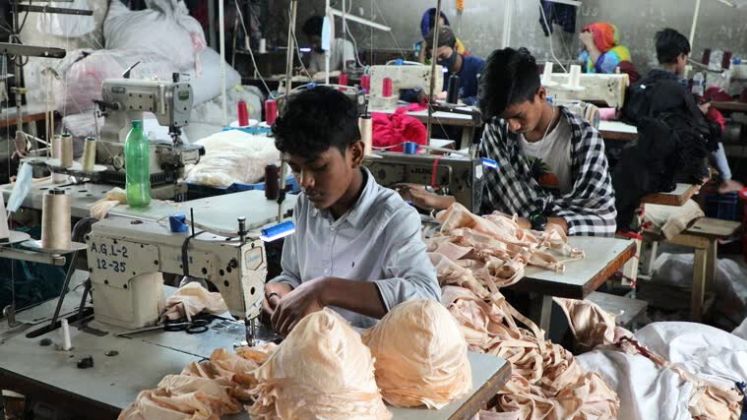Small business leaders and experts have advocated for comprehensive reforms to enhance financing access for the Cottage, Micro, Small, and Medium Enterprises (CMSME) sector in Bangladesh. The appeal was made during a policy dialogue organized by the Business Initiative Leading Development (BUILD) and Bangladesh Bank on Sunday, where stakeholders discussed the upcoming CMSME Financing Master Circular 2025.
Key topics included the promotion of alternative credit channels, group-based lending, collateral-free loans, extended grace periods, and refinancing schemes tailored for informal, women, and emerging entrepreneurs. Representatives from Bangladesh Bank, the Bangladesh Small and Cottage Industries Corporation (BSCIC), Palli Karma-Sheba Foundation (PKSF), SME Foundation, the Ministry of Industries, and private sector players participated in the discussion, sharing insights and challenges related to implementation.
BUILD presented findings from a perception survey among bankers, highlighting gaps in the definition of informal entrepreneurs and concerns over the recognition of alternative identification methods such as UBID, DBID, and PRA as substitutes for traditional trade licenses. The updated circular permits informal entrepreneurs to access loans up to Tk5 lakh; however, ambiguities surrounding eligibility criteria and documentation requirements continue to hinder effective implementation.
While the circular encourages the use of new credit channels like microfinance institutions (MFIs), it excludes loans linked through MFIs from refinancing benefits under Bangladesh Bank’s schemes. Group lending for micro and cottage entrepreneurs in clusters of five to ten members is permitted, but the risk of disqualification due to a single member’s default remains a concern.
BUILD also recommended adopting internationally recognized definitions (IWA 34) for informal and women entrepreneurs to standardize access and facilitate data collection. SME Foundation’s Suman Chandra Saha emphasized aligning the Credit Guarantee Scheme with the new circular and suggested involving the Bangladesh Securities and Exchange Commission (BSEC) in equity financing. He also called for the development of a comprehensive SME database.
BSCIC’s Mansurul Karim proposed utilizing BSCIC lands as collateral, although he acknowledged that BSCIC primarily supports industrial entities rather than individual entrepreneurs. Women entrepreneurs appreciated the circular’s positive intent but stressed the importance of awareness campaigns, district-level training, and expanding access beyond export-oriented sectors.
Bangladesh Bank’s Nawshad Mustafa noted that the circular was developed through extensive consultation and remains open to revisions. He highlighted the increasing role of the Payment and Reconciliation Authority (PRA) system in CMSME transactions and called for clearer regulations regarding work-order financing.
The dialogue underscored the need for inclusive and standardized financial policies to bolster the growth of Bangladesh’s CMSME sector, with stakeholders calling for ongoing reforms to overcome existing barriers.







